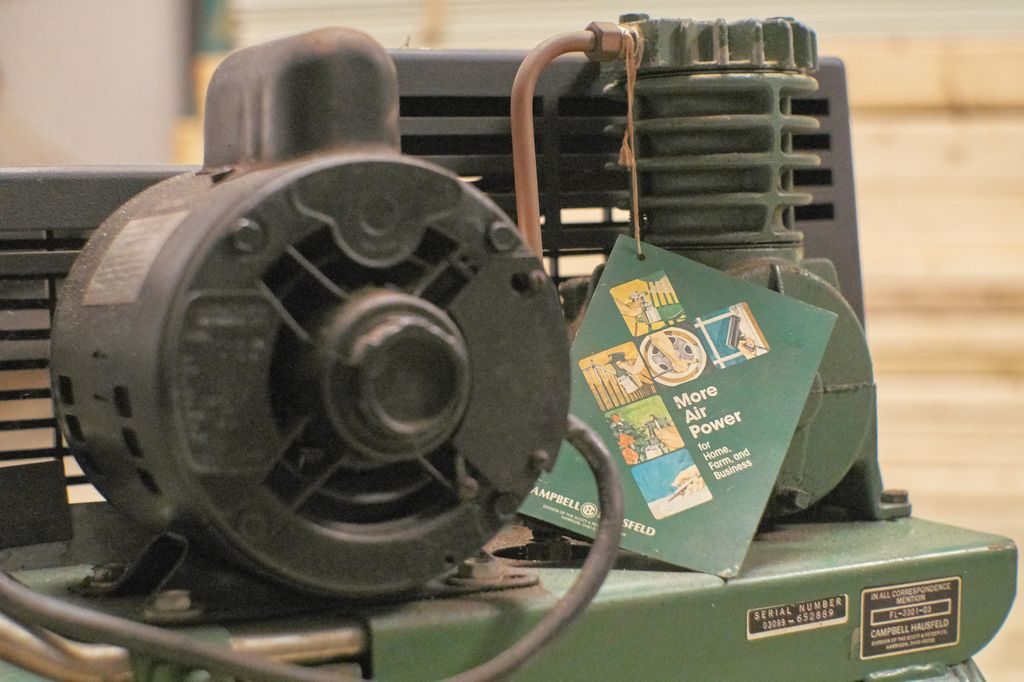If you ever need to replace shingles or do any roofing work, you’ll find a variety of air compressors for your framing and coil nailers. Pancake or gas? Oil-less or oil? I’ll run you through some of the options, brands, and give you enough information to make an educated decision.
| Image | Title | Price | Prime | Buy |
|---|---|---|---|---|
Top | BOSTITCH Pancake Air Compressor, Oil-Free, 6 Gallon, 150 PSI (BTFP02012) | PrimeEligible | Buy Now | |
 | CRAFTSMAN Air Compressor, 6 gallon, Pancake, Oil-Free with 13 Piece Accessory Kit (CMEC6150K) | PrimeEligible | Buy Now | |
 | DEWALT Pancake Air Compressor, 6 Gallon, 165 PSI (DWFP55126) | PrimeEligible | Buy Now | |
 | PORTER-CABLE C2002 Oil-Free UMC Pancake Compressor | Prime | Buy Now |
What you can expect to read:
Is there electricity at your work site?
First off, for roofing work you’ll want to consider your job site. Will you have electricity available? Is it new construction without electricity or is it a shingle tearoff in an existing residential setting? Determine your needs and then look for an electric or gas version accordingly.
What size compressor?
How many nailing guns or framing nailers will you be using? If you’ve got a crew working and you’ll be using 3 or 4 guns, you’ll want to look for a compressor that stores a higher volume of air which is measured in gallons. A 5 or 8 gallon will be too small for more than 4 roofing guns. A 6 gallon would work well for 2-3 roofers. Also, take note of the SCFM rating (standard cubic feet per minute) which determines the volume of air the compressor can output into the storage tank. This is important because a higher CFM means your compressor will recharge or recover quicker. The last thing you want is to be sitting on the top of a roof in the heat of the sun waiting for your compressor to recharge.
The pros and cons of electric air compressors vs gasoline engines:
| Pros | Cons |
|---|---|
| Smaller | Need electricity available |
| Lighter | Work interruption if you need to reset breaker |
| Quieter | |
| No Gas to buy |
Each type of compressor has its tradeoffs, so you’ll want to take each feature into consideration depending on what’s important to you. First off, electrics are going to be smaller and lighter weight than their gas counterpart due to the type of engine for each. Think about where you’ll be working and how far you’ll need to carry the compressor. An electric will also be much quieter due to the construction of the engine vs. gas.
One if the negative aspects of an electric is that you’ve got to have electricity available. If it’s new construction, it’s likely you won’t find electricity available yet. If you do have it available, you may have to run an extension cord closer to where you’ll be working. Depending on the circuit, there’s a good chance you may trip a breaker if it gets overloaded and exceeds it’s maximum current. So if you’re up on a roof, you’ll need to either get down to reset it or have someone else reset it for you.
The Best Air Compressor for Roofing Work


The PORTER-CABLE C2002 Oil-Free UMC Pancake Compressor is a solid choice at a great value. With its 150 PSI max tank pressure and recovery of 2.6 SCFM @ 90PSI, you should be able to get 2-3 roofers using this guy at once. Just make sure you follow the break in procedure if you choose this model.
The pros and cons of a gas air compressor
One of the major benefits of the gas engine is that you can put it anywhere as long as you’ve got fuel. It’s a huge benefit not being tethered to an extension cord or if there’s no electricity available. Just pick it up and put it where you need it. You also won’t be tripping and resetting breakers.
The negative aspect of a gas engine is that you’ve got to keep extra gas around for when you run out. You don’t want to be stranded and having to run to the gas station when you’re in the middle of a job and your compressor stops. Another negative is that a gas will be much louder than an electric, so just keep that in mind when making a decision.
What to look for
Try to get a Honda engine if you can. Honda engine’s are known to be easy to start, very durable, and will last longer than its competition.
Pro tip: Extend the life of your compressor by draining the condensation out when you’re done with work for the day. If you’ve used your compressor all day, you’re likely to have condensation inside as a byproduct of compressed air. It will eventually rust out if you don’t drain it and could even hurt someone if the metal is compromised and bursts under pressure.

